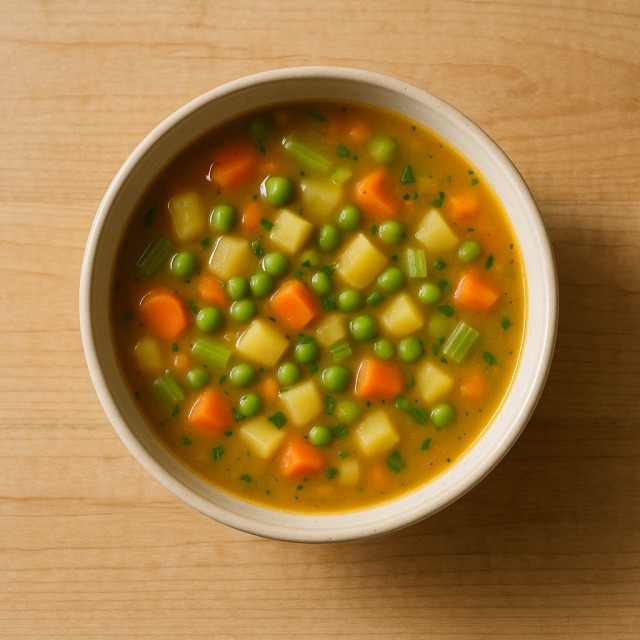Calorie Chart / Vegetables / Fennel
How Many Calories Are in Fennel?
Calculation of the nutritional value & Recommended Dietary Intake of fennel
For g and a calorie requirement of kcal
| Calories 22 kcal | Proteins 1.4 g | Lipids 0.4 g | Carbohydrates 3.4 g |
| 1% | 2% | 1% | 1% |
Health benefits of fennel

Fennel - 100g
Calories 16 kcal
Proteins 1 g
Lipids 0.3 g
Carbohydrates 2.4 g
With only 16 calories per 100 g, fennel is unmistakably a low-calorie vegetable, ideal for anyone counting calories, whether the goal is weight loss, weight maintenance, or simply a balanced intake of calories throughout the day. Despite its very modest calorie count, fennel is packed with valuable micronutrients.
The bulb provides appreciable amounts of vitamin C, folate, potassium, calcium, and magnesium. Its delicate aniseed fragrance comes from anethole, an essential oil studied for its supposed anti-inflammatory and digestive benefits (the term "supposed" is used because evidence is still limited). The fiber content supports satiety without adding many calories and may help regulate blood-sugar peaks after richer meals such as pizza or a buttery croissant.
Historically, Roman gladiators believed fennel would give them strength without burdening them with excess calories; medieval monks even chewed the seeds to curb hunger during fasting days—another testimonial to its low-calorie profile. Whether eaten raw or cooked, fennel therefore offers flavor, vitamins, and minerals for almost no calories at all.
Tips for incorporating fennel into a balanced diet
Because fennel delivers so few calories, it acts as a natural "calorie diluter" in many dishes. Shave it raw into a crunchy salad with fresh orange segments, a spoonful of plain yogurt, and mint: the sweet-aniseed contrast brings freshness while keeping the overall calories very low.
For a warm option, roast fennel wedges beside a fillet of salmon; the vegetable absorbs some of the fish juices, so you obtain restaurant-level flavor without the calorie burden of a creamy sauce. Similar logic applies if you simmer fennel in a broth together with lentils and tomatoes: a nourishing bowl that stretches proteins and fiber while controlling calories.
If you enjoy richer recipes such as chicken curry with rice, stir in diced fennel during the last five minutes of cooking. The bulb lightens the plate, adds volume, and lets you serve yourself a smaller portion of rice without noticing, thereby trimming calories. Grilled fennel can also replace high-calorie sides like French fries when paired with meat. Whatever the preparation, season with herbs, citrus, or a light drizzle of vegetable oil rather than cheese or butter when you want to keep calories modest.
Frequently Asked Questions
- How many calories are in fennel?
- Fennel provides 16 kcal per 100 g.
- Is fennel good for a weight-loss diet?
- Yes. Its 16 calories per 100 g make it one of the lowest-calorie vegetables available, so it adds volume and fiber to meals without pushing total calories up.
- Does cooking fennel change its calorie content?
- Boiling, steaming, or roasting does not add calories unless you add fat. Calories only increase if you roast it with butter or bake it in cheese—keep seasonings light to preserve the original 16 calories.
- What nutrients do I get along with so few calories?
- You still receive vitamin C, folate, potassium, calcium, magnesium, and valuable fiber. In other words, fennel is nutrient-dense despite its tiny calorie footprint.
- Can fennel replace high-calorie sides?
- Absolutely. Swapping mashed potatoes for mashed fennel, or serving roasted fennel instead of a high-calorie avocado salad, can cut several hundred calories from a meal while adding freshness.
- Is raw or cooked fennel lower in calories?
- Raw and plain-cooked fennel have virtually the same 16 calories per 100 g; preparation technique, not temperature, is what changes the calorie content.
Similar foods
Information provided by Calorie Menu may contain inaccuracies or errors. It cannot, under any circumstances, substitute medical advice or medication.










